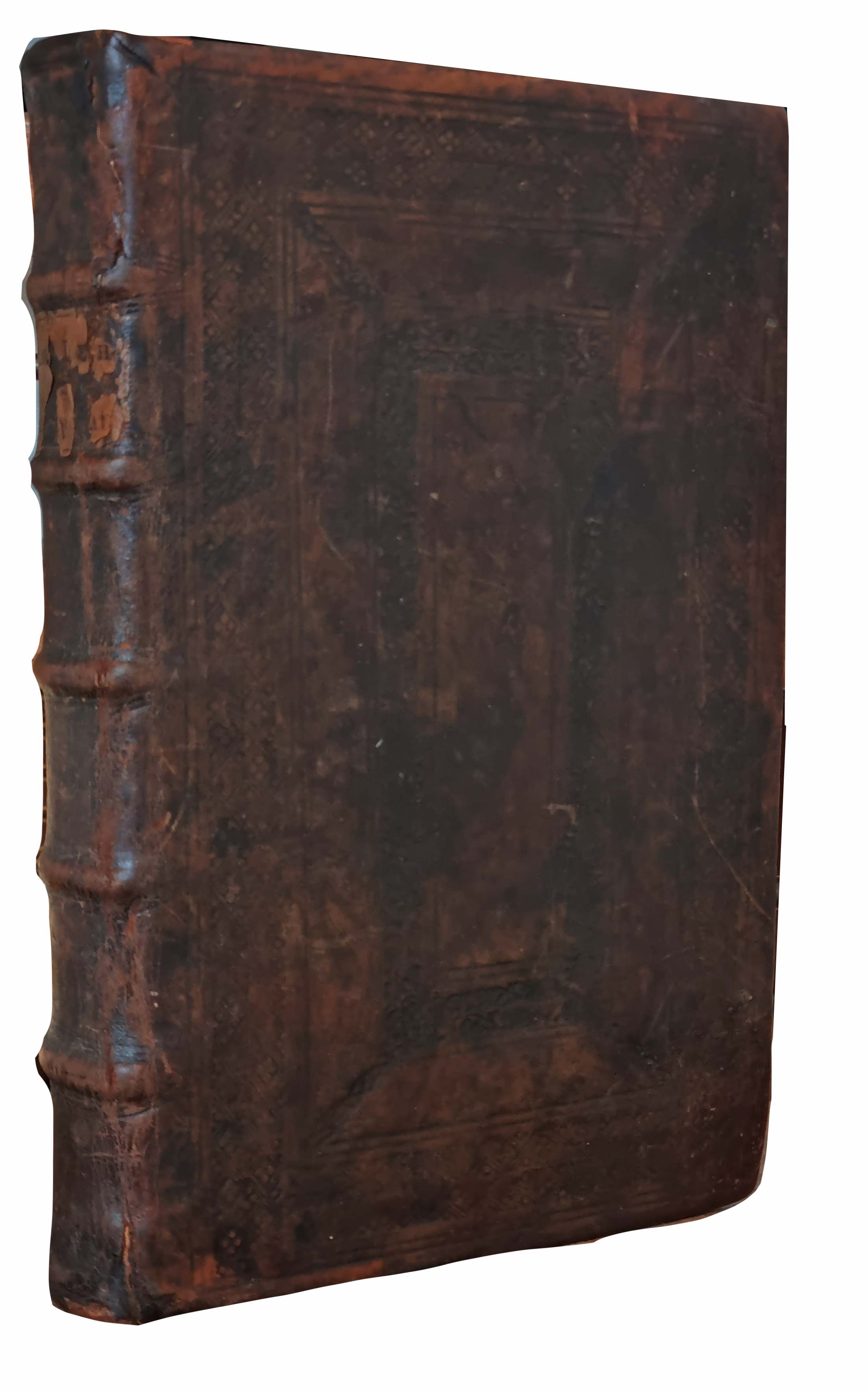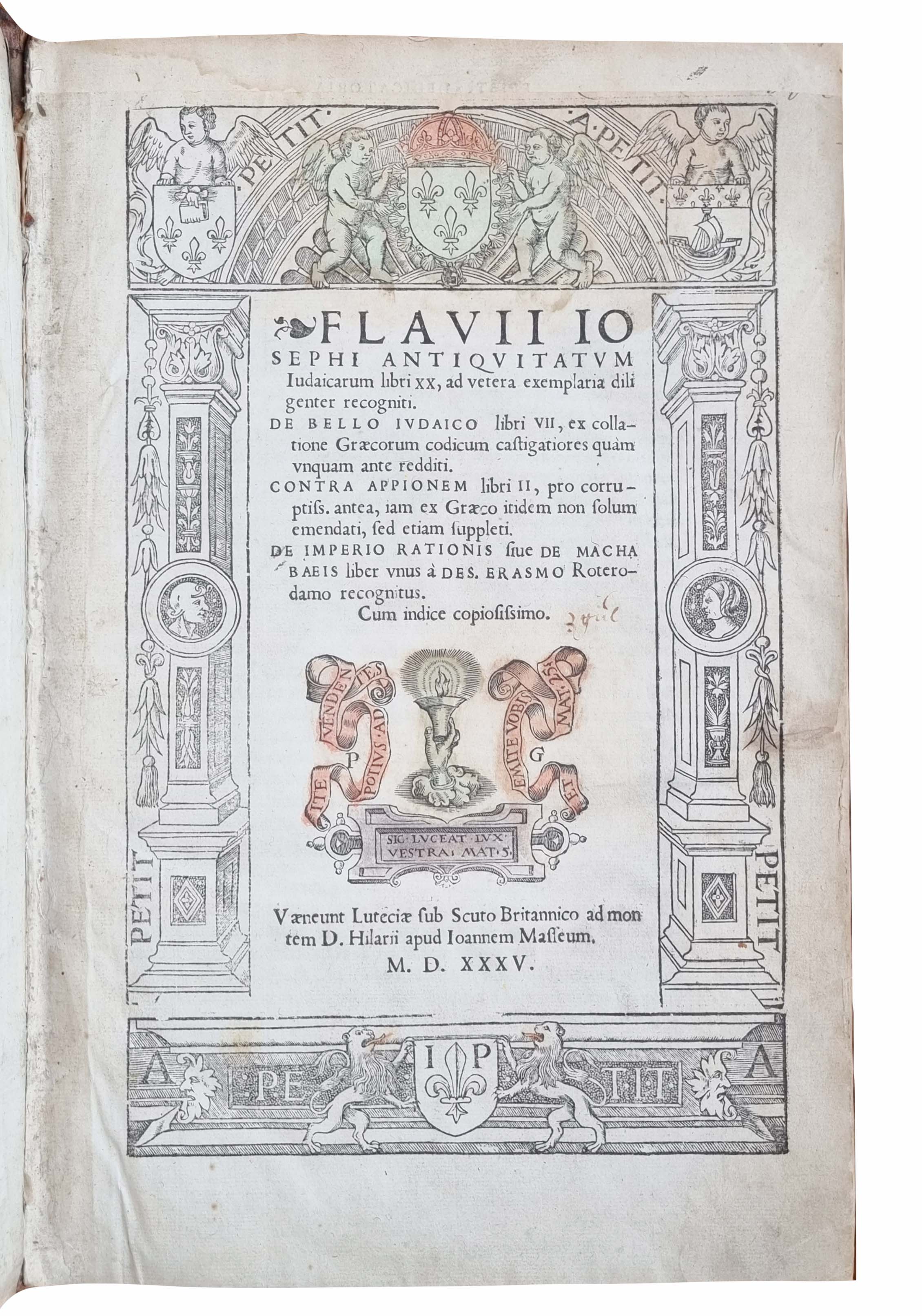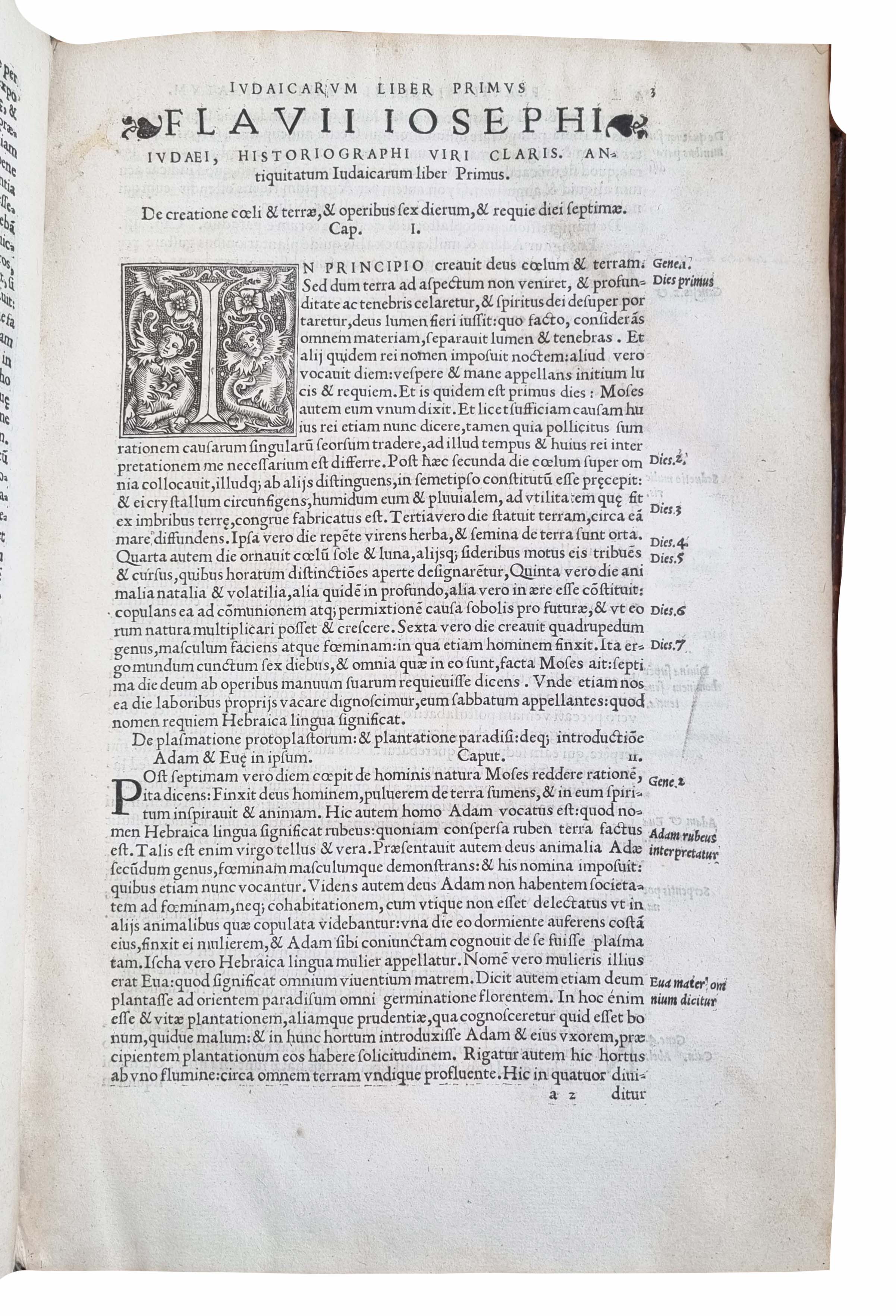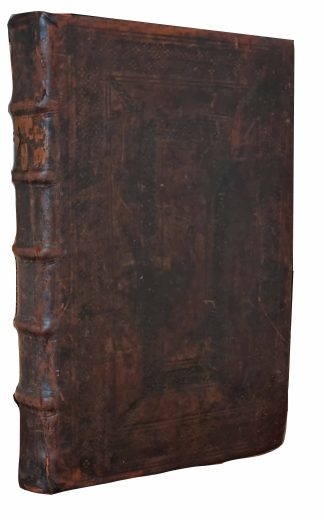JOSEPHUS, Flavius.
Antiquitatum Iudaicarum libri XX (…), De bello iudaico (…), Contra Appionem (…), De imperio rationis
Paris, Jean Macè, 1535£1,750.00
Fol., pp. (xxxii) 743 (i). Roman letter, large charming woodcut figured initials. T-p within handsome architectural woodcut border with putti holding French royal coat of arms at head and Jean Petit’s device at foot, Pierre Gaudoul’s at centre, t-p highlighted in early red, green and grey watercolours. Top of upper blank margin of t-p excised, light waterstain to upper margin of two initial gatherings and lower blank margin of last, worming to lower blank margin of final gatherings, occasional marginal spots or mark. A good copy, crisp and clean in contemporary Flemish calf over boards, covers double blind ruled to a panel design, outer border filled with a double quatrefoil diaper roll, third border with floral roll, spine with blind ruled raised bands, a bit rubbed, small crack to upper joint at head repaired, missing ties. Contemporary price indication “3 gul(den)” to t-p.
A good copy of Flavius Josephus’ collected works, edited and revised by the eminent German scholar Sigismundus Gelenius (1497-1554). This edition is a French reproduction of the original, published the previous year by Froben in Basle, featuring a charming new woodcut title page. Other Parisian printers (Jean Petit, Ambroise Girault and Jacques Kerver) republished it in 1535: Froben could not take action against them as his privilege was only valid within the Holy Roman Empire – he did, however, immediately sue two printers of Cologne who pirated this work in 1534.
Josephus Flavius (c. 37-100) was a Romano-Jewish writer and military leader, author of a number of historical, apologetical and autobiographical works which together comprise a major part of Hellenistic Jewish literature. This edition comprises his major works. The Latin text (mostly attributed to Rufinus of Aquileia) was heavily revised – on the basis of two Greek manuscripts – by Gelenius, who introduced many new readings translating Greek expression into humanistic Latin.
‘Antiquitates Judaicae’ (The Antiquities of the Jews) recounts the history of the Jews from creation up until the revolt of AD 66-70 and contains contemporary references to Jesus, James (the ‘brother’ of Jesus), John the Baptist, Pontius Pilate, Herod the Great, Agrippa I and Agrippa II, as well as the Sadducees, the Pharisees and the Zealots. ‘Bellum Judaicum’ (History of the Jewish War) gives a detailed account of the revolt of AD 66-70 and includes Josephus’ famous description of the siege of Jerusalem. “The Jewish War not only is the principal source for the Jewish revolt but is especially valuable for its description of Roman military tactics and strategy” (Britannica). ‘Contra Apionem’ (Against Apion) is a defence of Judaism against the Greek Alexandrine grammarian Apion, in which Josephus demonstrates the antiquity of Jewish religion and the authenticity of the Jewish Bible. The last treatise, traditionally ascribed to Josephus but now acknowledged to be spurious, ‘De imperio rationis sive de Machabaeis’, is an account of the martyrdom of the seven Maccabees and their mothers.
French impressions of Froben’s edition are rare, we were able to locate only two copies bearing Macè’s imprints in libraries (Ohio State University Library, Biblioteca Nacional de Chile).
USTC 209751; Adams J361. See Renouard éditions parisiennes IV, 1438. This edition not in BM STC Fr. C16; Brunet, Graesse or Dibdin.In stock





